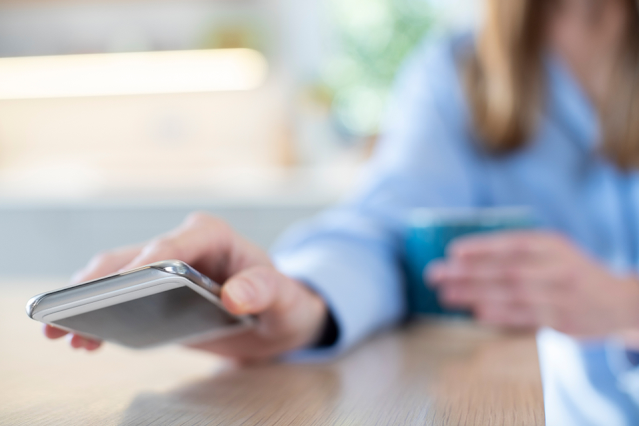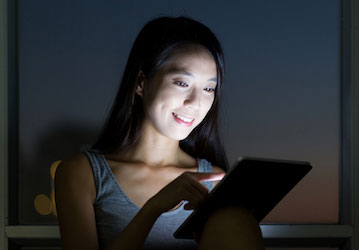Time spent with smartphones, tablets, and computers can impact your ability to get healthy sleep. The primary culprit is exposure to blue light that’s emitted from all electronic devices. Using them at night can disrupt your natural circadian rhythm and suppress the secretion of melatonin, a powerful sleep hormone. When your eyes are exposed to artificial light, you might feel more awake when you should be getting ready to wind down. Try these tips to minimize the impact of blue light:
- Set a “2-hour” rule. Turn off handheld devices and televisions at least 2 hours before bedtime. And dim the lights at home. Try to avoid lying in bed and scrolling social media and email before bedtime too. If you happen to read something stress-inducing or upsetting, your day might end on a negative note. Try reading a book, journaling, or reflecting on something you feel grateful for instead.
- Block the blue. If you can’t avoid electronic devices before bed, some tools can help offset blue-light exposure. Many mobile devices come equipped with blue-light reducing functions already installed. You also can purchase blue-light blocking glasses with amber lenses. Or download software that adjusts the light on your screen, depending on the time of day and your location.
- Use light wisely. Not all light exposure is bad. Head outside into real sunlight, especially when it’s early, so you can sleep better at night. Leverage blue-light exposure appropriately during the day, if possible. It can boost your energy and readiness, increase alertness, and enhance cognitive function and mood.
 Need tips to balance technology & telework? Find Out More
Need tips to balance technology & telework? Find Out More
Screens and devices are unavoidable. Still, they’re often an important part of daily life. Understanding their effects on sleep can help you choose how and when to make best use of technology. Visit “Sleeping Well in the Digital Age” from Georgetown University’s School of Nursing for an infographic explaining the impact of blue-light exposure on your sleep.”
